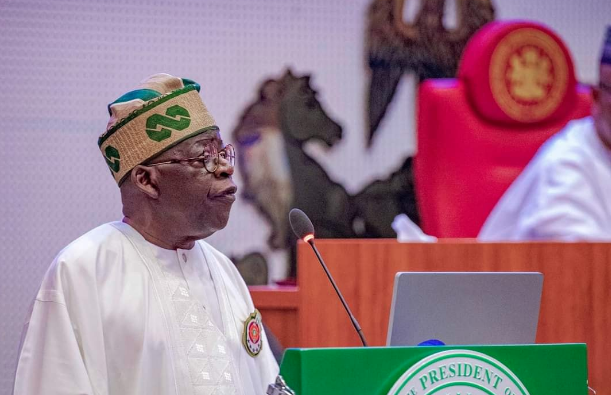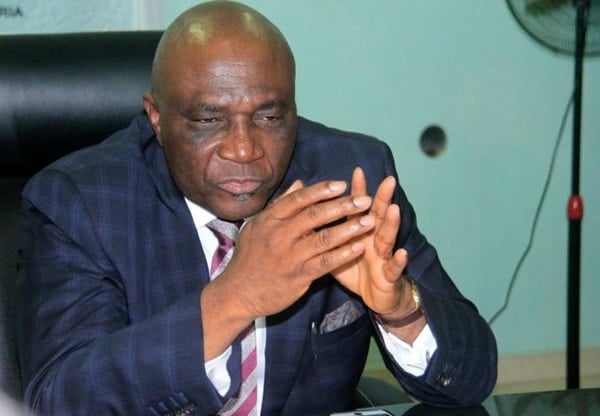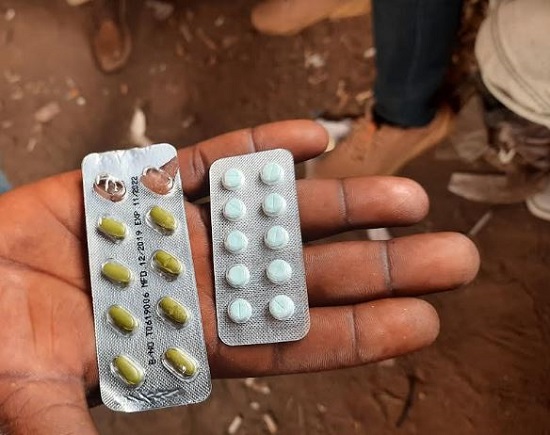It is in order to say President Bola Tinubu is actually showing some balls with many decisions he has taken since he assumed power, although the jury is still out on the reforms. Last Monday, he “ordered” (we Nigerian journalists are madly in love with that word, aren’t we?) the implementation of the Oronsaye Report. We must quickly remind ourselves that it is a seasonal practice. President Goodluck Jonathan, who set up the seven-member panel in 2012 to “restructure and rationalise” governmental bodies, “ordered” the implementation in 2014. President Muhammadu Buhari also “ordered” the implementation in 2020. Let us now hope or pray that this will be the final “order”.
We have this obsession with proliferating governmental bodies in Nigeria. For example, we used to have the Department of Petroleum Resources (DPR) regulating the entire petroleum industry. Someone had a brain wave that we can further atomise it, so we now have the Nigeria Upstream Regulatory Commission (NURC) and the Nigeria Downstream and Midstream Petroleum Regulatory Authority (NMDPRA). Someone will soon develop the idea of creating the Nigeria Downstream Regulatory Commission (Diesel), the Nigeria Downstream Regulatory Commission (Petrol) and the Nigeria Downstream Regulatory Commission (Kerosene and Others). Please, don’t quote me.
How did we get here? Let me guess. Setting up agencies is our own way of “job creation”. Normally, it is private businesses that should be proliferating and creating jobs in a market-driven economy, but since this has become a very difficult thing for us (maybe because the economic policies, operating environment and infrastructure are very hostile to innovation and growth), we have found the short cut by creating agencies upon agencies. The newly established National Commission for the Coordination and Control of Proliferation of Small Arms and Light Weapons (NATCOM) announced last year that it was going to employ and train about 300,000 Nigerians. Yes, 300,000 Nigerians.
Let me guess again. For a tiny group of people, the sweetest jobs in Nigeria are the ones with the coat of arms on the business cards, so proposals for the creation of new government agencies and institutions are never scarce. The moving spirits, or the political enablers, are probably thinking of replicating a bank or a fintech firm with an MD, EDs and GMs. Some agencies have been created since because someone had an idea of the lucre on offer. It does not matter if the agency will be duplicating the functions of another or if it will be useless altogether. Even before some agencies are legally created, the executives are already waiting in the wings. This is stranger than fiction.
Advertisement
How did we get here? As I was saying, when the oil boom happened to us in the 1970s, we lost our senses. As a result of the Arab-Israeli war of October 1973, crude oil prices had risen fourfold within five months. From an average price of $3 per barrel in 1973, it was going for $12 by December 1974. Nigeria became overwhelmed with the flood of petrodollars and the accompanying pathologies. In 1970, our earnings from oil exports was a modest $200 million. Between 1973 and 1978, we earned an overwhelming $32 billion, averaging over $5 billion per year. Imagine your salary is N150,000 and you hit a windfall that now pays you N4 million monthly. You will surely be agog and go gaga.
With so much money, we began to expand the size of government without paying the necessary attention to need, efficiency and service delivery. In 1972, the Udoji Public Service Review Commission was set up by the military government to examine the organisation, structure and management of public service. In 1974, the commission made far-reaching reform proposals, but government was more excited about the recommended 100 percent increase in salaries and benefits across board — to be backdated to 1972 and paid in arrears. That would be politically more popular and beneficial. We had the oil money, so why not spend it cheerfully? Why worry about tomorrow?
Everybody was happy with the Udoji Award, save for the economists who warned of a looming inflation. We had plenty petrodollars, so the exchange rate was about 60 kobo/$ (aka “The good old days”). It was cheaper to import biscuit than make it in Nigeria. Mr Joseph Atobisi, an activist, wrote two years ago, “Civil servants developed appetite for imported commodities like sugar, canned milk, stockfish, dumping available local alternatives. More workers bought cars and expensive furniture. Nigeria soon became an import dependent nation. Manufacturing started collapsing. Unemployment spiralled. From 5.40% in 1973, inflation rose to 12.67% in 1974 and 33.96% in 1975.” It is what it is.
Advertisement
One of the pathologies of sudden oil wealth — or should I say natural resource windfall — is the bloating of government expenditure, notably through wage bills, overheads and white elephant projects, under the philosophy of “nina lowo” (“money is meant to be spent”). We thought our problem was not money but how to spend it. This was at a time most rural roads were untarred and most villages unelectrified. Norway, which also enjoyed the oil boom, chose to insulate most of the windfall from its economy by setting up a special fund and continuing to be a fiscal state. Although we built infrastructure from the windfall, we also created a culture of bloating government budgets.
Another pathology of the several oil booms since 1973 (starting with the Udoji Award) is the humongous expansion of public service. Government jobs could be instantly created and workers easily employed — based more on political considerations than a desire to enhance administrative capacity and efficiency. Every oil windfall came with federal, state and local governments bloating expenditures, multiplying the agencies and thinking oil money would flow forever. We can argue that with a growing population and the liberalisation of the economy from the 1980s, we needed to expand public administrative capacity — but that was probably the smallest rationale on our minds.
We created an agency to make sure that fuel prices are the same all over the country and called it Petroleum Equalisation Fund. People reported for work every day. At no time were fuel prices the same but marketers still got the bridging payments in billions. We created an agency whose job is to enforce federal character in federal employments and named it Federal Character Commission (FCC), even when it is clear that federal character is always missing. People report to that office daily and they even have a DG. I can count at least 200 useless agencies. We have never had the intention of stopping the creation of more agencies or bloating public expenditure. It is always good for politics.
The National Assembly, in particular, appears to be trigger-happy when it comes to unleashing new agencies on us, although the blame equally goes to the executive and states. As reported by PUNCH published in 2022, the 9th Senate passed bills establishing 376 institutions and agencies. How they would be funded is none of their business. We created the Nigerian Independent Warehouse Regulatory Agency, National Poverty Eradication Commission, Erosion Control and Prevention Commission, etc etc. The bill to set up the Electoral Offences Commission (a job purely within the ambit of the police) is in the pipeline. A group recently proposed a Cement Price Control Agency!
Advertisement
In the last three decades, we have decimated the Nigerian Police Force by creating several agencies to duplicate or take over their functions. The Federal Road Safety Commission (FRSC), the Directorate of Road Traffic Services (which we call “VIO”), the Economic and Financial Crimes Commission (EFCC), Independent Corrupt Practices and Other Related Offences Commission (ICPC) and the Nigeria Security and Civil Defence Corps (NSCDC) are all performing the functions of the police. Barely two days after Tinubu “ordered” implementation of Oronsaye Report, the house of reps passed a bill setting up the Peace Corps to also do part of the job of the police. We play too much in this country.
Even before deciding to implement the Oronsaye Report, Tinubu had ruffled features by putting directors and permanent secretaries on a maximum tenure of eight years so that civil servants will stop gaming the system and holding on to those positions forever. The policy was introduced by President Umaru Musa Yar’Adua but Buhari reversed it. Let us now see how far Tinubu can go with the Oronsaye Report. There is a reason it had been gathering dust for 10 years without the political will to implement it. Vested interests will lobby to get some agencies exempted. They know what to do. We talk about how to make Nigeria work but work against it when our interests are at stake.
Finally, let me caution us that the Oronsaye Report is not a silver bullet, but it is a good development that Tinubu has set the ball rolling. He has a tough job ahead and he should know that. More so, the Oronsaye Report is dated, so there will be more knotty issues to deal with. For instance, what happens to the agencies that were created after the White Paper was issued? What happens to those commissions and agencies that are not under spotlight but are richer than some states? Shouldn’t we look at them too? Most importantly, Tinubu has to focus on an overall reform of the public service for optimal service delivery. Nigerians deserve better output from the bureaucracy.
AND FOUR OTHER THINGS…
FORWARD MOVEMENT
Advertisement
We have been told several times that we needed to ditch the “military constitution” because it is against “true federalism” but I am very happy that many states are moving forward with the same constitution. Aviation and railways are on the exclusive list, but states are building airports and running airlines. Lagos state has just inaugurated its second train service, the Red Line, covering Ebute Metta to Agbado with stations at Oyingbo, Yaba, Mushin, Oshodi, Ikeja, Agege and Iju. The first phase is projected to transport 750,000 passengers daily, reaching 1.1 million once it is fully operational. The Blue Line from Okokomaiko to Lagos Marina was inaugurated last year. Progress.
MARKET MESS
Advertisement
The Central Bank of Nigeria (CBN) has taken a series of policy measures in the last few days to stop the naira from bleeding, to create a sense of stability. We desperately needed some calm. The naira was already heading for N2,000/$ and someone joked that it might enter 2025 before all of us. The MPC decision on interest rate has been praised by many market analysts who are hopeful that the economy will respond positively. The instability in recent times has been very devastating, although I find it comforting that there has been a swift and decisive response and Mr Yemi Cardoso, the CBN governor, has done a good job of trying to calm our fears. We are watching with bated breath. Relief.
RICE AND DEATH
Advertisement
The Nigeria Customs Service (NCS) has gone into the business of repackaging and selling contraband rice to help implement Tinubu’s “renewed hope” agenda. Well done. But, predictably, there was zero risk assessment and zero crowd control, so seven people lost their lives in the stampede at the zonal headquarters in Yaba, Lagos, where the sale took place. In response to the tragedy, customs suspended the exercise, belatedly saying it was “part of the service’s resolve to ensure the safety of Nigerians and to enable it to properly articulate its next line of action, in order not to defeat the vision of the initiative”. Why was I expecting to hear customs had fired someone? Negligence.
NO COMMENT
Advertisement
The Nigerian government has introduced the expatriates employment levy (EEL), fixed at $15,000 per employee. According to the geniuses behind the policy, the levy is intended to “discourage” companies from hiring expatriates for jobs Nigerians “can do”. The EEL is expected to generate $13 billion per year. Imagine if the UK, US and Canada reciprocate by charging $15,000 on each Nigerian immigrant working in their countries. Meanwhile, will expats doing the jobs Nigerians cannot do also pay the levy? If you really want to “discourage” expats, why not deny them work visas? And how will you raise your $13 billion after discouraging expats from coming to Nigeria? And you know what? The company that got the contract is owned by expats doing the job Nigerians can do! Wonderful.
Add a comment







